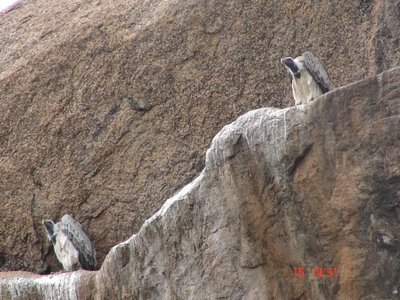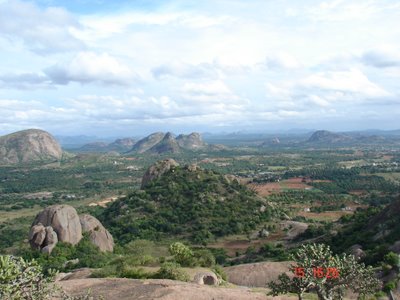
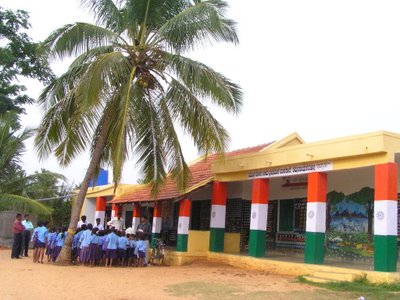
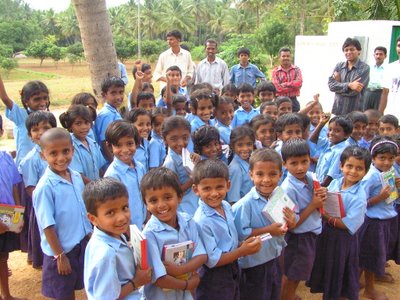



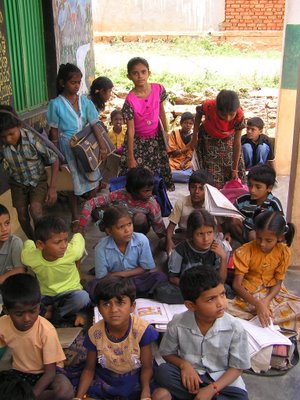





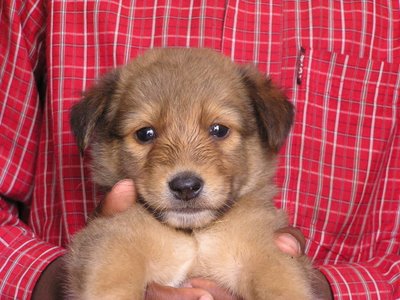



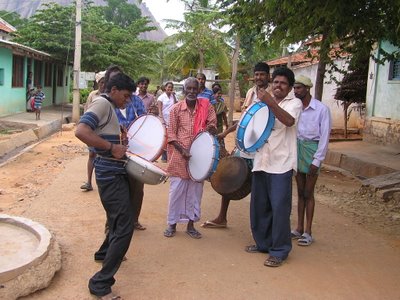

















 Aug 15th, a day celebrated as India's Independence day, turned out to be quite special for Murtuza, Dharin, Ami & me. An half a day of trek at Ramnagara, with vultures watched like never before. As you approach Ramdevara betta, this colony of long billed vultures, can't be missed. They eye you from their high perch, as you eye them back with your binoc's, their sheer size astounds. And, as we climbed closer, their size simply got bigger!!!!
Aug 15th, a day celebrated as India's Independence day, turned out to be quite special for Murtuza, Dharin, Ami & me. An half a day of trek at Ramnagara, with vultures watched like never before. As you approach Ramdevara betta, this colony of long billed vultures, can't be missed. They eye you from their high perch, as you eye them back with your binoc's, their sheer size astounds. And, as we climbed closer, their size simply got bigger!!!!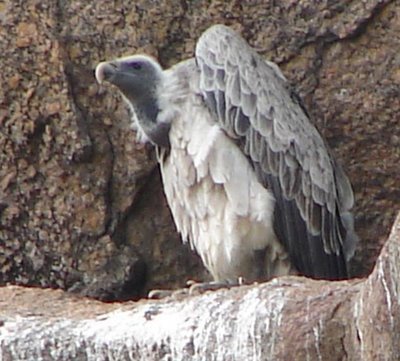
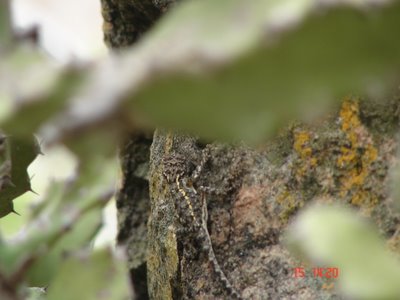

We counted 12 vultures sitting closely. Now & then, one of them would soar into the sky, or glide back & land softly. The nest seemed to consist of natural crevices at a good height from possible human intervention.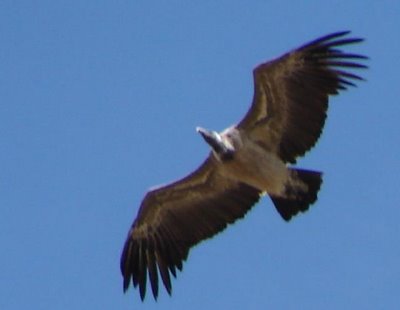
The paleness of the underwing is diagnostic of Gyps Indicus, Indian Long billed Vulture.
